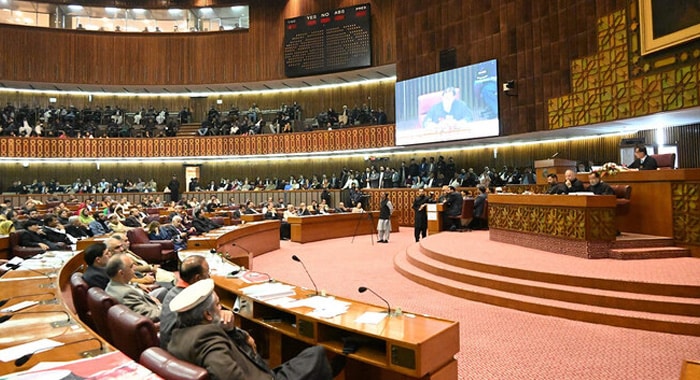Terrorists affiliated with the banned Balochistan Liberation Army (BLA) are using advanced wireless communication systems beyond conventional internet networks, the Secretary for Information Technology and Telecommunication revealed during a meeting of the National Assembly Standing Committee on Information Technology and Telecommunication.
The revelation came as the committee, chaired by MNA Aminul Haque, took up the issue of prolonged internet outages in Balochistan’s Panjgur district.
Officials from the Ministry of Interior briefed the committee, disclosing that a request for security clearance to restore internet services in Panjgur had been submitted on March 22. However, clearance was denied by security agencies for a further six months due to ongoing security threats. The committee was told that internet data services would remain suspended on security grounds.
Committee member Paulin Baloch voiced strong criticism over the continued disruption. “For three years, internet services in Panjgur have remained erratic. If we haven’t seen improvement in all this time, how can we expect a resolution in the next six months?” she asked, adding, “I state under oath — my district is being punished deliberately.”
Echoing her concerns, MNA Umair Niazi acknowledged Balochistan’s security challenges but emphasized that the existing system needed urgent reform. “We cannot continue like this,” he said.
Aminul Haque reassured the members that the concerns of the people of Balochistan were close to the government’s heart. “Finding lasting solutions to their problems is our top priority,” he said.
However, it was committee member Adil Khan Bazai who raised a critical question: “Has shutting down the internet improved the situation? In fact, things have only worsened. The terrorists are not even using the public internet — they’re relying on other technologies.”
He urged the IT secretary to explain the actual communication methods used by the militants. Responding to the query, the IT Secretary revealed that terrorists were employing modern wireless technologies to coordinate their operations and, in some instances, also using internet-based platforms. “We receive regular intelligence reports from security agencies regarding these developments,” he said, while admitting that he was not fully aware of all the tools being deployed by militant networks.
Chairman Aminul Haque concluded the meeting by stating that national security remained paramount. “We will convene an in-camera session to allow for a frank and detailed discussion on this sensitive matter,” he announced.
The session underscored the complex interplay between national security imperatives and citizens’ access to digital connectivity, highlighting the growing need for technological resilience in counterterrorism efforts.





